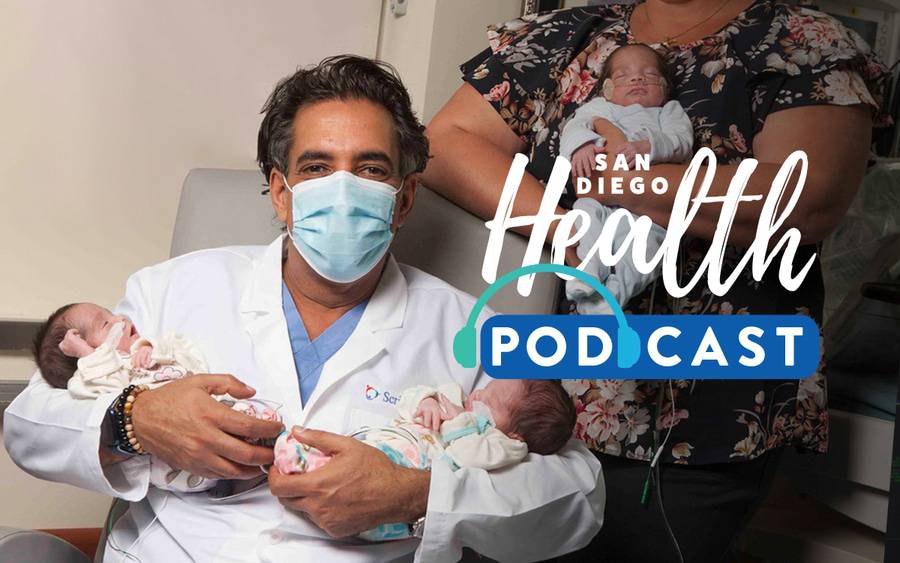What Kind of Care Is Needed in a Multiple Pregnancy? (podcast)
Perinatologists get involved, help lower risk of complications

Dr. Sean Daneshmand, Perinatology, Scripps Clinic
Perinatologists get involved, help lower risk of complications
So, you’ve just found you’re pregnant with twins, triplets or more — now what? Multiple babies mean multiple blessings, but also may require a higher level of prenatal care. Multiple gestations carry a higher risk of hypertension, gestational diabetes, pre-term birth and other complications. Pregnancy can be a wonderful time, but also a stressful time. Fortunately, Scripps has expert physicians, a multidisciplinary perinatology program and an excellent neonatal care unit.
In this episode of San Diego Health, host Susan Taylor and guest, obstetrician and gynecologist Sean Daneshmand, MD, medical director of the Scripps Clinic Perinatology Program, discuss possible complications that come with multiple gestations and how women lower their risk. Dr. Daneshmand also outlines the role of perinatologists in caring for those pregnant with multiples and how that care leads to better outcomes for mom and babies both.
Since 2018, the Scripps Clinic Perinatology Program has been caring for women with high-risk pregnancies.
Listen to the episode on prenatal care during multiple pregnancy
Listen to the episode on prenatal care during multiple pregnancy
Podcast highlights
Lightly edited for clarity
Watch the video on what to expect in a multiple pregnancy
Watch the San Diego Health video with host Susan Taylor and Dr. Daneshmand discussing what to expect when you are expecting twins or more.